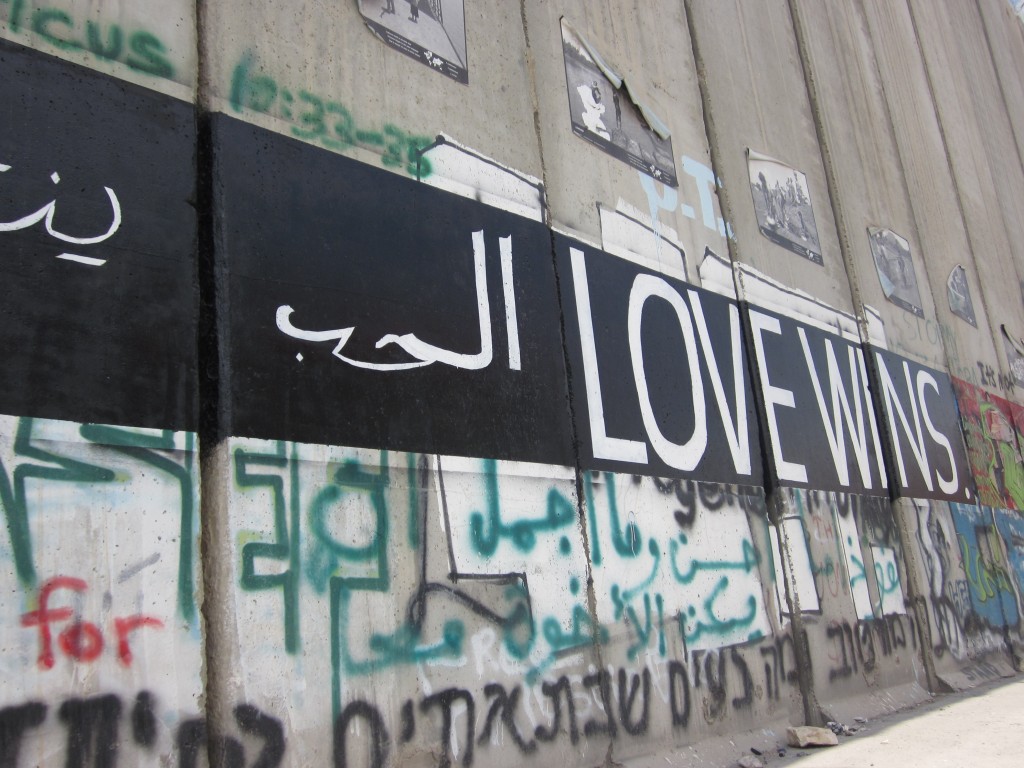The Lilith Blog 1 of 2
November 15, 2011 by Merissa Nathan Gerson
A-Salaam Alaykoum
 Somewhere between San Francisco and Berkeley I developed a craving for hummus. Not hippie grocery hummus, not coffee shop hummus, not deli hummus but hummus, the real deal. I took a gamble with a Google search on my cell phone and followed it far down San Pablo Avenue all the way to a small place called Zaki Kabob House.
Somewhere between San Francisco and Berkeley I developed a craving for hummus. Not hippie grocery hummus, not coffee shop hummus, not deli hummus but hummus, the real deal. I took a gamble with a Google search on my cell phone and followed it far down San Pablo Avenue all the way to a small place called Zaki Kabob House.
Zaki, of course, was closed upon arrival. I stood outside a bit annoyed and a bit frustrated and then decided to go in anyway, pushed the door, and I was quickly inside the closed restaurant. A young woman in a hair net came out and I said, defeated, “You are closed, aren’t you?” And she answered a curt, “yes.” And then another woman appeared, a beautiful woman in her late 50’s with a full head scarf and warm hazel eyes.
I told her I knew they were closed, but maybe I could just buy some hummus? I smiled and she looked at me like I was her own daughter and said, “of course.”
“You know,” she said, “you look just like my niece. You even talk like her.”
I said, “I miss my mother, I want her hummus.” She said, “Where are you from?” and I answered a hesitant, “I am Jewish.” It went on from there, about my mother’s food and its complex relationship to Jerusalem, to Lebanese food, to food of all walks but for certain, hummus, the homemade, tahini-thick real deal.
She shared with me that she had just come from Jerusalem. “We call it Palestine, you call it Israel.” There was a very un-American recognition of Jewish agency in the equation. “It is G-d’s land,” she said, “When we all die it returns to G-d, it does not belong to anyone.” She had come from East Jerusalem and I said I had never been there, only to Bethlehem, shaking my head at the sadness of that place. “Is it as bad as Bethlehem,” I asked? “No,” she answered, “there is life in East Jerusalem. You can breathe.”
We talked about walls and we talked about life being stifled and her warmth never ceased, no anti-Jewish stare as I so often imagine, fear, and on occasion, actually experience. She told me she was half Palestinian and half Moroccan. I told her I just came from a year in Jerusalem. We talked about the old Jerusalem, the one my mother knew, the one where Muslim, Jewish and Christian food mixed along with their cultures.
As the woman in the back prepared hummus, babaganoush, falafel and pita to go, I kept talking with this woman. She asked if I would help her write her cookbook, if I could help her write everything down. “What about?” “Everything, my whole life.” We concurred that if she wrote an hour a day, after one of her five daily prayer sessions, she could transcribe the book without my help. We talked about whether to write chronologically, or by the weight of memory.
And then my food arrived and I snuck a taste of a small falafel and it was falafel like in your dreams, crispy, a dense complex mix of substance and spice. Everything was rich with the Middle East I miss. Everything except our loving interaction, a Palestinian and, for all intents and purposes, an Israeli, bonding over hummus and cookbooks. She looked at me at one point and shuddered, “you know it is not the people’s fault there. It is the governments.” “Governments,” she said, plural.
On the counter were young photos of a dead family member. The main cook, her husband I assume, was featured by photo on the door. As I left I stammered a nervous “A salaam alaykoum” and she in turn, an enthusiastic “Wa alayki s-salaam.” And then “Wait,” she said, reaching under a pastry glass. She handed me a giant square of baklavah on the house.
 Please wait...
Please wait...